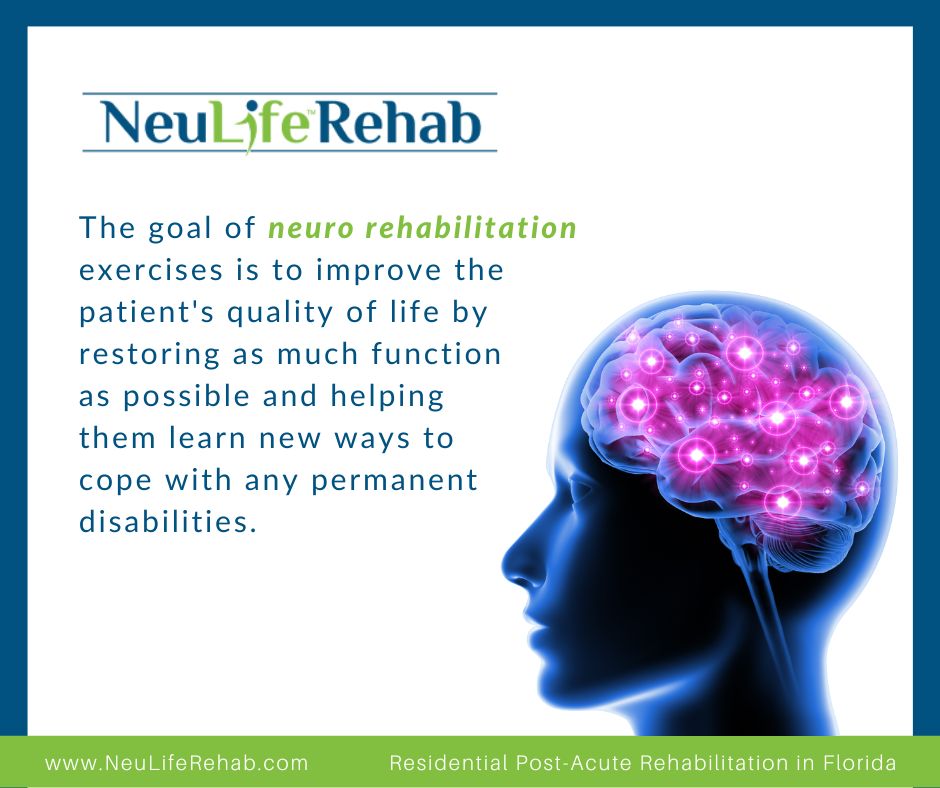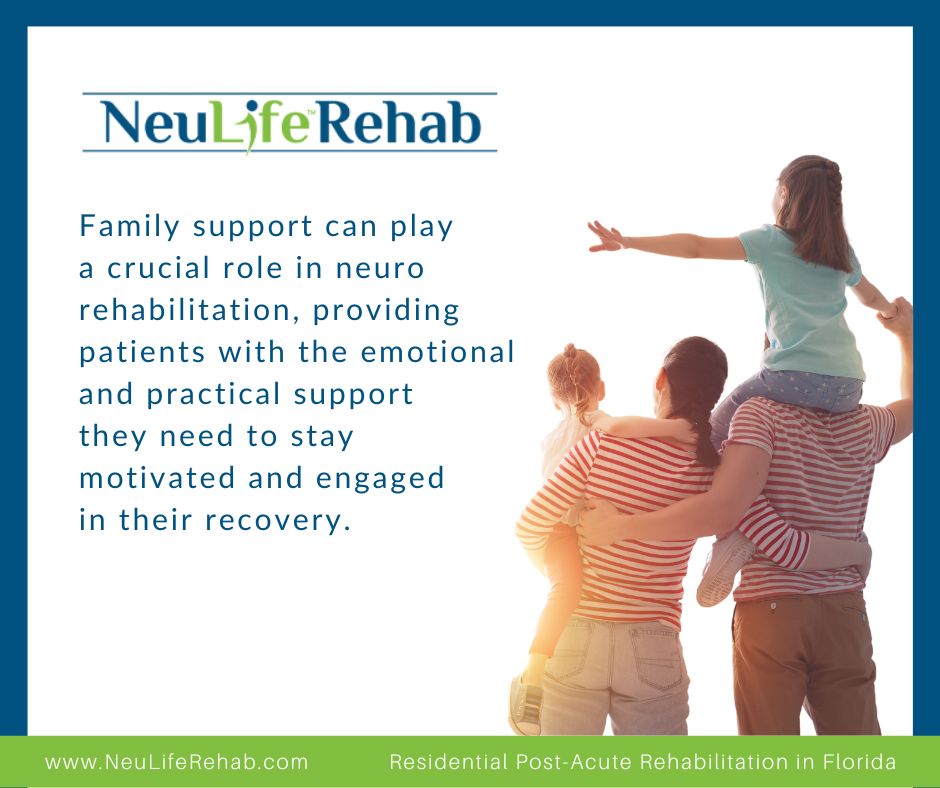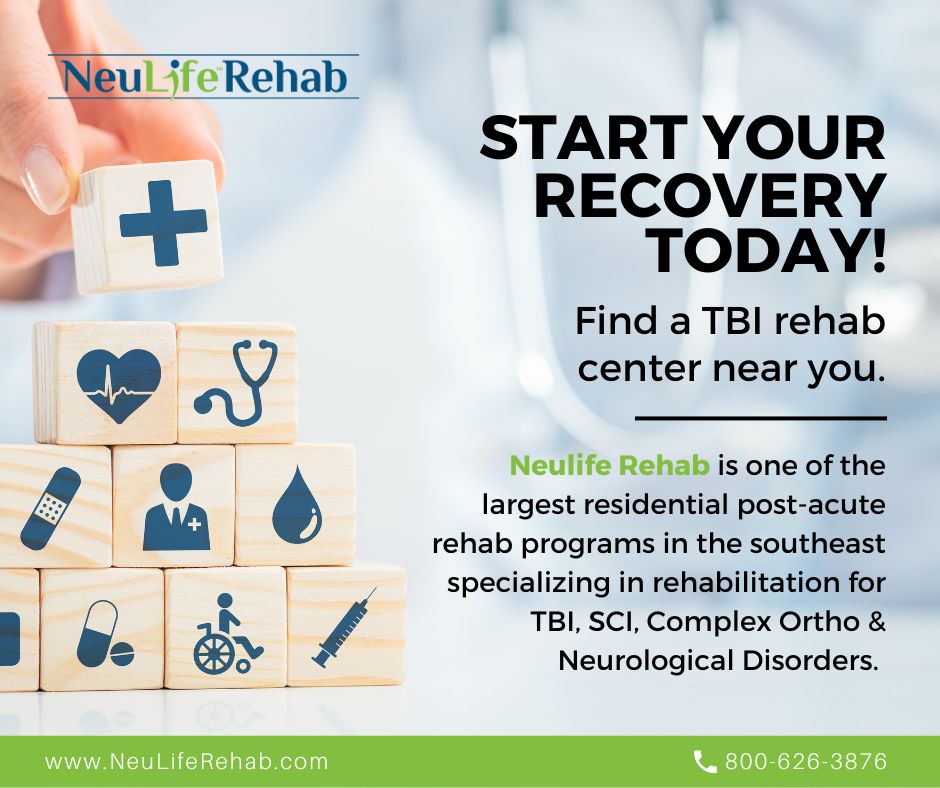According to the Centers for Disease Control and Prevention (CDC), an estimated 1.5 million Americans sustain a traumatic brain injury (TBI) each year. To spread awareness and prevention, the Brain Injury Association of America (BIAA) leads the nation in observing Brain Injury Awareness Month every March.
If you or someone you love has suffered a brain injury, you know firsthand the challenges that come with recovery. Brain rehabilitation is a long and often difficult road, but with the right support, it can be an incredibly rewarding one.
In this article, we will explore the power of family support in neuro rehabilitation and how it can accelerate brain injury recovery. We will also share success stories of individuals who have benefited from the support of their loved ones and offer resources to help you find a TBI rehab center near you.
Brain injury rehabilitation, also known as neuro rehabilitation, is a type of therapy that helps individuals recover from brain injuries and conditions that affect the nervous system. This can include TBIs, strokes, and other neurological disorders.

Neuro rehabilitation can take many forms, depending on the patient's needs and goals. It may include physical therapy to improve movement and strength, occupational therapy to help with daily living tasks, speech therapy to help with communication, and cognitive therapy to improve memory and other cognitive abilities. It may also include counseling or support groups to help patients and their families cope with the emotional challenges of brain injury recovery.
Recovering from a brain injury is a complex and often challenging process that can be different for each individual. Some of the challenges that patients may face during neuro rehabilitation include:
Brain injuries can cause a wide range of physical challenges, including muscle weakness, coordination problems, and difficulty with balance and mobility. These challenges can make it difficult for patients to perform everyday tasks and may require extensive physical therapy to overcome.
Brain injuries can also affect cognitive function, including memory, attention, and problem-solving abilities. These challenges can make it difficult for patients to return to work or school and may require specialized cognitive therapy to address.
Recovering from a brain injury can be an emotional rollercoaster, with patients experiencing a wide range of emotions, including frustration, anger, and depression. These emotional challenges can make it difficult for patients to stay motivated and engaged in their recovery.
Some of the ways that family members can support their loved ones during brain injury recovery include:
One of the most important things that family members can provide during neuro rehabilitation is emotional support. This can include listening to the patient's concerns and fears, offering words of encouragement, and providing a sense of comfort and security during a difficult time.
Family members can also provide practical support during brain injury recovery, such as helping with daily living tasks, attending appointments, and managing medications. This can help alleviate the patient's stress and allow them to focus on their recovery.
Family members can also serve as advocates for their loved ones during neuro rehabilitation. This can include communicating with healthcare providers, coordinating care, and advocating for the patient's needs and rights.

If you are supporting a loved one during neuro rehabilitation, there are several things you can do to maximize their recovery:
Learn as much as you can about your loved one's condition and the rehabilitation process. This will help to better understand their needs and how you can support them during their recovery.
Recovering from a brain injury is a long and often difficult process. Be patient with your loved one and offer them your unconditional support and encouragement.
Managing a loved one's care can be overwhelming. Keep track of appointments, medications, and other important information to help you stay organized and on top of their care.
Supporting a loved one during brain injury recovery can be emotionally and physically exhausting. Make sure to take care of yourself by eating well, getting enough sleep, and seeking support when you need it.
One of the biggest residential post-acute rehabilitation centers in the Southeast, NeuLife Rehabilitation offers specialized rehabilitation programs for a variety of catastrophic injuries. We are capable of treating a broad range of diseases and injuries through the skills and expertise of our highly trained staff of clinical professionals.
The power of family support in neuro rehabilitation is clear in the stories of individuals who have overcome incredible odds with the help of their loved ones. Here are just a few examples:
After suffering a brain injury in a car accident, this patient’s family rallied around him to provide emotional and practical support during his recovery. With the help of his family and the trusted specialists at Neurolife Rehab, Michael was able to regain much of his physical and cognitive function and return home for complete recovery.
After a car accident, going into a coma, and having a brain injury, this patient wanted to run competitively again. His family supported him through months of physical and cognitive therapy, helping him to improve his abilities and achieve his goals.

If you or a loved one is in need of brain injury rehabilitation services and you are looking online for the best post acute rehabilitation center, look no further. NeuLife Rehabilitation offers a wide range of services to help patients with brain injuries and other neurological conditions achieve their goals and maximize their recovery.
With the right support, neuro rehabilitation can be an incredibly rewarding journey. If you or someone you love is on this journey, remember that family support can make all the difference. By providing emotional and practical support, advocating for your loved one's needs, and staying organized and informed, you can help them achieve their goals and overcome the challenges of brain injury recovery.
Want to visit NeuLife Rehabilitation? Call us at 800-626-3876 or schedule a tour.
***
The material contained on this site is for informational purposes only and DOES NOT CONSTITUTE THE PROVIDING OF MEDICAL ADVICE, and is not intended to be a substitute for independent professional medical judgment, advice, diagnosis, or treatment. Always seek the advice of your physician or other qualified healthcare provider with any questions or concerns you may have regarding your health.

We know that choosing the next step in your recovery from a catastrophic illness or injury is complex. Together, we can help you take the next step.
Contact us with any questions today.